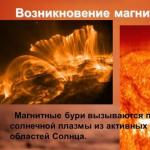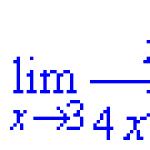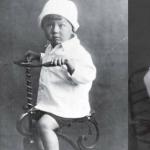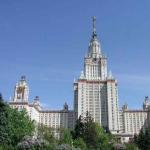1. After the battle. Dead Red Army soldiers and a damaged BT tank.
2. A destroyed Soviet BT tank and a killed tanker. 
3. Dead Red Army soldiers in a trench. 
4. A dead Red Army soldier in a trench. 
5. Dead Soviet machine gun crew. 
6. Killed Soviet soldiers near the caterpillar of a KV tank. 
7. German columns they pass by a cart with a Red Army soldier who had previously come under fire. 
8. A burnt-out Soviet light tank BT-7, from which the driver never managed to get out. 
9. Dead Soviet artillerymen. 
10. Dead machine gun crew of the Red Army. 
11. After a direct hit by an artillery shell on the dugout. 
12. Burnt Soviet tanker. 
13. Dead Red Army soldier. 
14. Dead Soviet tank crews. The tank is a light Soviet tank T-26. To the right of the car stands a captured Red Army soldier (with his hands in his pockets). 
15. Dead Soviet tank crews and tank landing soldiers. Tank - T-26. 
16. Destroyed Soviet light tanks T-26 and killed Red Army soldiers. 
17. Destroyed Soviet armored car and its dead crew. 
18. A Soviet armored car BA-10 burned out and overturned into a ditch, next to which the remains of a burnt Red Army soldier are visible. 
19. Soviet heavy tank KV-2, destroyed during the battle: there are traces of numerous hits on the armor, the right side was torn apart by a large-caliber shell, the gun barrel was pierced. On the armor is a dead tanker. 
20. Soviet light tank T-26 and dead soldiers of the Red Army. 
21. Dead Red Army mortar crew. 
22. Killed Soviet soldier in a trench. 
23. Killed Red Army soldiers in a roadside ditch. It is very possible that these were prisoners shot by the Germans: the soldiers did not have belts - they were taken away from the prisoners. 
24. Dead Soviet soldiers, as well as civilians- women and children. Bodies dumped in a roadside ditch like household trash; Dense columns of German troops are calmly moving past along the road. 
25. Soviet soldier who shot himself to avoid being captured by the Germans.
These are the events of Lyubanskaya offensive operation to break the blockade of Leningrad (January 7 - April 30, 1942) - after an unsuccessful offensive Soviet troops and their entourage, the Germans carried out an operation on Volkhov to destroy the pocket of the 2nd Shock Army (the settlements of Myasnoy Bor, Spasskaya Polist, Mostki). 
Until 1965, there was no holiday on May 9. It was a working day for everyone. And only in 1965 this day became a “red” day of the calendar. At the same time, the first military parade was held on Red Square. For twenty years people did not consider Victory Day a holiday. For them it was a day of mourning and remembrance. What has changed in consciousness?
On May 9, Russia celebrates a national holiday - Victory Day in the Great Patriotic War of 1941-1945, in which the Soviet people fought for the freedom and independence of their Motherland against Nazi Germany and its allies.
The Great Patriotic War, which is the most important and decisive part of the Second World War of 1939-1945, began at dawn on June 22, 1941, when Nazi Germany, violating the Soviet-German treaties of 1939, attacked the Soviet Union. Romania and Italy took its side, Slovakia joined them on June 23, Finland on June 25, Hungary on June 27, and Norway on August 16.
The war lasted almost four years and became the largest armed conflict in human history. On the front, stretching from the Barents to the Black Sea, from 8 million to 13 million people fought simultaneously on both sides in different periods, from 6 thousand to 20 thousand tanks and assault guns, from 85 thousand to 165 thousand guns and mortars, from 7 thousand to 19 thousand aircraft.
Already in 1941 the plan lightning war, during which the German command planned to capture the entire Soviet Union in a few months, failed. The persistent defense of Leningrad (now St. Petersburg), the Arctic, Kyiv, Odessa, Sevastopol, and the Battle of Smolensk contributed to the failure Hitler's plan lightning war.
The country survived, the course of events turned. Soviet soldiers defeated fascist troops near Moscow, Stalingrad (now Volgograd) and Leningrad, in the Caucasus, inflicted crushing blows on the enemy Kursk Bulge, Right Bank Ukraine and in Belarus, in the Iasi-Kishinev, Vistula-Oder and Berlin operations.
Over the course of almost four years of war, the Armed Forces of the USSR defeated 607 divisions of the fascist bloc. On Eastern Front German forces and their allies lost more than 8.6 million people. More than 75% of all weapons and military equipment enemy.
The Patriotic War, which was a tragedy in almost every Soviet family, ended in victory for the USSR. The act of unconditional surrender of Nazi Germany was signed in the suburbs of Berlin on May 8, 1945 at 22.43 Central European time (Moscow time on May 9 at 0.43). It is because of this time difference that the Day of the end of World War II in Europe is celebrated on May 8, and in the USSR and then in Russia - on May 9.
In the USSR, May 9 was declared Victory Day over Nazi Germany by a decree of the Presidium of the Supreme Soviet of the USSR dated May 8, 1945. The decree declared May 9 “a day of national celebration to commemorate the victorious completion of the Great Patriotic War Soviet people against the Nazi invaders and the historical victories of the Red Army, which culminated in complete defeat Hitler's Germany, declaring unconditional surrender." By decree, May 9 was declared a non-working day.
On May 9, 1945, festivities and crowded rallies took place everywhere. Amateur groups, popular theater and film artists, and orchestras performed in the squares and parks of cities and villages. At 21:00 the Chairman of the Council made an address to the Soviet people People's Commissars Joseph Stalin. At 22:00 a salute was fired with 30 artillery salvoes from 1,000 guns. After the fireworks, dozens of planes dropped garlands of multi-colored rockets over Moscow, and numerous sparklers flashed in the squares.
In December 1947, a decree was issued by the Presidium of the Supreme Soviet of the USSR, according to which May 9, the holiday of victory over Germany, was declared a working day.
And only in the year of the twentieth anniversary of the Victory, by decree of the Presidium of the Supreme Council of April 26, 1965, May 9 was again declared a non-working day. The holiday was given a solemn status and a special anniversary medal was established. On May 9, 1965, a military parade was held on Red Square in Moscow, and the Victory Banner was carried in front of the troops.
Until 1995, parades on Red Square in Moscow on Victory Day were held only in anniversary years - in 1965, 1985 and 1990.
On May 9, 1995, to commemorate the 50th anniversary of Victory in the Great Patriotic War, an anniversary parade of war participants and home front workers of the war years with units of the Moscow garrison was held in Moscow on Red Square, which, according to its organizers, reproduced the historical Victory Parade of 1945. The Victory Banner was carried to the parade.
In accordance with the Federal Law of May 19, 1995 “On the Perpetuation of the Victory of the Soviet People in the Great Patriotic War of 1941-1945,” May 9 was declared a national holiday - Victory Day. It is a non-working day and is celebrated annually with a military parade and artillery salute.
Since that time, there have been parades on Red Square, but without military equipment. The tradition of holding military parades on Red Square with the participation of military equipment was resumed in 2008.
From April 15, 1996 on Victory Day when laying wreaths at the grave Unknown Soldier, holding ceremonial meetings, parades of troops and processions of veterans of the Great Patriotic War on Red Square in Moscow along with National flag The Russian Federation carries out the Victory Banner, hoisted over the Reichstag in May 1945.
Since 2005, a few days before Victory Day, the patriotic event "St. George's Ribbon" starts. For millions of people not only in Russia, but also abroad, George Ribbon- a symbol of memory, connection between generations and military glory. In addition to the CIS countries, Germany, Great Britain, France, Bulgaria, Italy, Poland, Serbia, Czech Republic, Spain, Finland and other European countries, the USA, Canada, Argentina, China, Israel, and Vietnam are taking part in the event. African countries also joined the action: Morocco, Congo, South Africa, Tanzania and others.
Today's promotion St. George Ribbon" is a large-scale international public project, the purpose of which is to preserve the memory of the Great Victory of Russia in World War II and to counter attempts to revise history, to form the idea of patriotism and pride in the historical and modern victories of Russia.
According to established tradition, on Victory Day there are ceremonial events and concerts. To monuments of military glory, memorials, mass graves Wreaths and flowers are laid, guards of honor are displayed. Memorial services are held in churches and temples in Russia. Since 1965, radio and television have been broadcasting a special commemorative and mourning program “Minute of Silence” on May 9.
In 2015, as part of the celebration of the anniversary of the Victory, parades or ceremonial processions of troops or personnel of the Russian Armed Forces will be held in 70 cities of Russia. Veterans of the Great Patriotic War will take part in all of them.
On this day there will also be an All-Russian procession, the participants of which carry portraits of their relatives who participated in the Great Patriotic War. The event will take place in more than 800 cities and towns in Russia and 11 other countries around the world. In 2013, processions took place in approximately 170 cities and towns in Russia, in 2014 - in more than 560 populated areas in five countries around the world. Then about half a million people took part in the action.
(Additional
On the day the war ended, May 9, 1945, I was in Moscow. I was then working as a war correspondent for the Trud newspaper, and it would have been time for me to hear the happy news somewhere in Germany, and not in a house on Gorky Street near the Mossovet, but the shell shock made itself felt again, and from the last trip to the 3rd The Belorussian Front, when the fearless Chernyakhovsky died, I seriously and for a long time went out of shape. But (this is not a banal literary device or a deceptive game of obliging memory) when the cherished words were heard on the radio, all my illness, both physical and mental, disappeared. Together with my wife and friends, who somehow ended up with us, with a bottle of vodka in my hands, I found myself on a crowded, crazy street, disappearing into the crowd with a strange, sharp pleasure. I have never experienced such happiness and tension of my essence in the world and at the same time I have never been so completely annihilated in the environment, I have not lost myself in perfect merging with the masses, as in those unforgettable hours.
I remember we hugged and kissed strangers and took turns drinking vodka straight from the neck of the bottle, yelling, laughing, crying, singing songs, but there were no thoughts, just an overwhelming feeling, like forefather Adam when he woke up in life, and there were no sorrow for the departed, everything disappeared in stupefying happiness. It was difficult for me to write words about the departed, forgotten in those minutes. But this is not at all forgetfulness in the common sense of the word, they were simply with us, they rose from their graves and got mixed up in the street crowd. It seems to me that I would not be at all surprised if I encountered in a crowd of those who died, whose death was confirmed by the funeral, and sometimes by my own eyes. And I’ll say again - this is not a fiction, not a literary device, but the truth of that unique, lifelong experience.
And it never happened like that again. The head stopped spinning with the intoxication of joy, the belief that there was no more war, firmly entered the mind, heart, body, and with this coolness all the dead appeared, and the pain became forever inseparable from joy, pride, from surprise at what had been done. Most often, I celebrated a great day with my school friends, and, like everyone else, probably, our first toast was to victory, the second to those who did not return and thus bought us, breathing, drinking, chewing, from oblivion.
I lost two of my best friends in the war - Pavlik and Oska, and this loss remained irreplaceable.
There is a well-known saying: no one is irreplaceable. And the truth is that there are no replaceable people - every person is a unique miracle. Twenty million lives is a high price to pay even for such a victory. Therefore, there is no need to brag and beat the timpani on this day. Once upon a time, Viktor Astafiev, it seems on the thirty-fifth anniversary of the Victory, said about the front-line soldiers: let's keep quiet, let those for whom we died speak. I don’t remember the words, but I convey the idea correctly.
We went to our death not only for the sake of Moscow or Leningrad, but also for the sake of an imaginary, invisible to the eye, “dominant” height, because it was needed for victory. We gave our lives not only in decisive battles, but also for the sake of a diversionary maneuver, because the Motherland needed it that way. Have we really retained this elevated, sacrificial attitude towards the common cause? It was easier for soldiers to give their lives than for many of us today to give up everyday comfort and various small advantages.
There is a wonderful song, the line of which has become a saying: for yourself and for that guy. But sometimes they sing it with a mocking squint: they say, we are ready to live, drink and love both for ourselves and for that guy, but to build, to fight!.. Oh, if only we did it like we fought, even if only for ourselves, a lot of things would look different.
For many, war is already history, but for those for whom it is ingrained in the bones, stuck like lead in the body, the lead of loss in the heart and the eternal burden of reason and memory, it will never become the past. And there is no need on Victory Day, and especially on the approaches to it, to throw off this burden and, holding hands, lead happy round dances, sing songs in hoarse voices and boast: look, they say, what we are!.. Isn’t it better to be serious and concentrated? to think about whether we managed the victory as we should have, whether we are getting along with life as we dreamed in the trenches and we who returned, and, what is much more important, those who will not sit with us at the festive table and will not burn their larynx with their throats. Respect for them requires that at least on this day we judge our peaceful affairs according to the laws of war.
History has preserved the information that our troops hoisted a red flag over the Reichstag in Berlin on May 1. The countdown starts from this date, because... the process of negotiating an armistice on the part of Germany began, but I.V. Stalin demanded complete surrender on the part of Germany, so the first act of surrender was signed on May 7, 1945. Our government was not satisfied with the signing of the act by a person who did not have full authority to do so, and therefore this act was not generally recognized. On May 8, 1945, the second act of complete surrender of Germany was prepared and signed.
Many Western countries prefer to celebrate Victory Day on May 8, because... at the time of signing the second act it was signed May 9, 1945 at 0:43 Moscow time, and in Berlin at that time it was still May 8th. However, having accepted the surrender, the Soviet Union did not sign a peace treaty with Germany, that is, it formally remained at war with Germany. As a result, the war with Germany ended on January 25, 1955, with the publication by the Presidium of the Supreme Soviet of the USSR of the decree “On ending the state of war between the Soviet Union and Germany.” For 10 years after Victory Day, both countries were legally in a state of war.
By the Decree of the Presidium of the Supreme Soviet of the USSR of May 8, 1945 “On declaring May 9 a Victory Day,” it was established that May 9 is the day of national celebration - the VICTORY HOLIDAY. May 9 is considered a non-working day. On that day in Moscow there was a magnificent fireworks display, a grandiose event at that time, about 30 salvos were fired from a thousand anti-aircraft guns, people rejoiced, sang and danced, hugged and remembered those who did not live to see this day, on their faces along with smiles tears of joy glistened.
For reasons of saving funds allocated for the celebration of Victory Day, the authorities decided to primarily direct funding to the restoration of destroyed cities, villages, Agriculture, therefore, in 1947, May 9 was recognized as a regular working day. And only in 1965, in honor of the 20th anniversary of the Great Victory, May 9 was officially restored as a national holiday. In all cities Soviet Union Holiday parades and fireworks, congratulations to war veterans, and concerts in honor of Victory Day have been resumed.
Almost 70 years have passed since the end of the Great Patriotic War, we, the new generation, continue to worthily honor the memory of our grandfathers and great-grandfathers who laid down their lives in the name of our future. In all cities there are parades, demonstrations of military equipment, laying of fresh flowers at memorials and monuments to the soldiers who defended our country from the German invaders. And it doesn’t matter what date we celebrate Victory Day, the main thing is that we remember and honor those who shed blood for us, our future, on Russian soil.
Another date for the victory holiday is September 3, the day when militarized Japan was defeated. There is a decree of the Presidium of the Supreme Soviet of the USSR, dated September 2, 1945, that September 3 is also declared a non-working holiday.
Thus, it turns out that Victory Day was celebrated twice a year three times - in 1945, 1946 and 1947.
The celebration of Victory Day was canceled on December 24, 1947, when a new resolution of the Presidium of the Supreme Council of the CCCP was issued:

Then they constantly postponed, canceled, and rescheduled holiday dates. In 1947, Victory Day over Japan was made a working day. There was a holiday on December 22, the day of memory of Lenin - in 1951 he also became a worker. In addition, the USSR was declared cold war in 1946, after Churchill’s Fulton speech, it was expensive to organize a holiday on a nationwide scale, and from the point of view of organizing the labor of the population, it was wrong. Everyone worked and restored destroyed cities and towns, and built new factories. Partly to be ready to repel a new attack.
There is another assumption why they stopped celebrating Victory Day. The initiative came from Stalin, who perceived the post-war popularity of Georgy Zhukov as a direct threat to his post. The political cases “Aviators’ Case” and “Trophy Case” developed in the same vein in 1946-1948.




